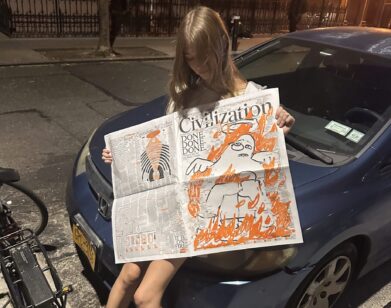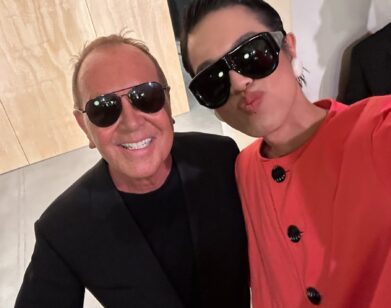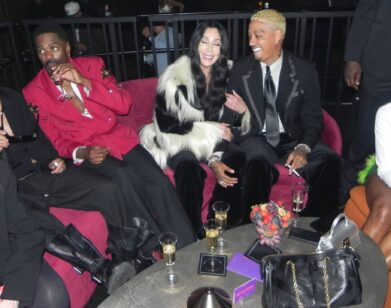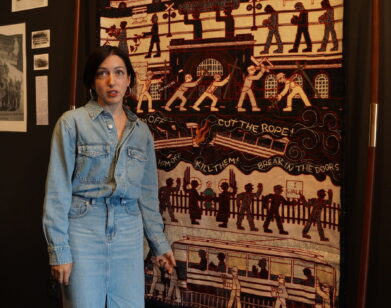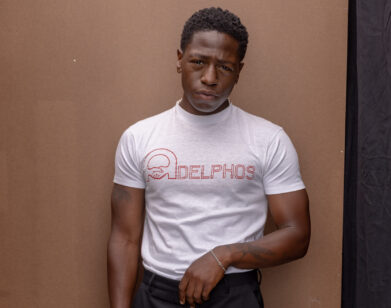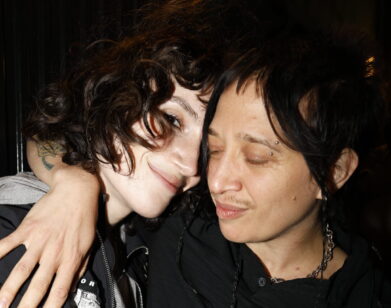Jess Walter’s Fame Monsters
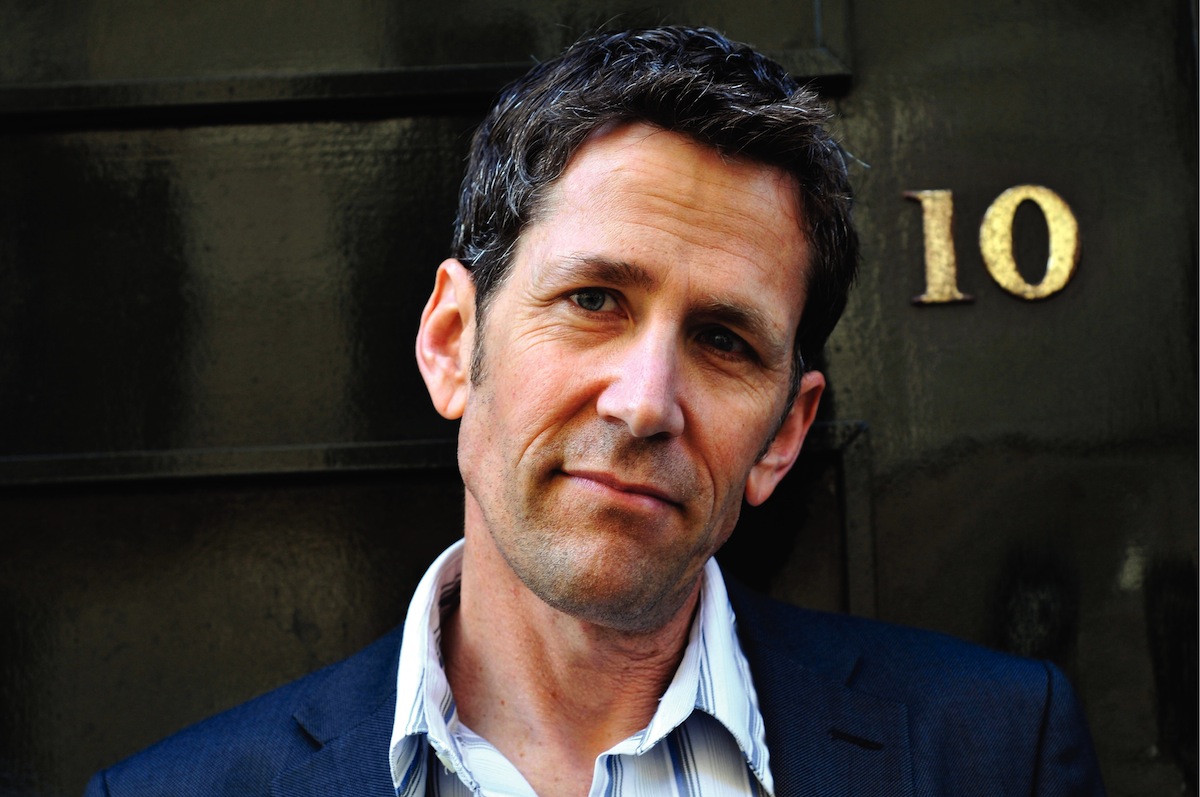
ABOVE: JESS WALTER. IMAGE COUTESY OF HANNAH ASSOULINE
Celebrity shapes much of our modern lives. For the characters in Jess Walter’s novel Beautiful Ruins (Harper Collins), fame is a force that inspires beauty, sadness, devotion, addiction, wickedness, and love. Starting with the arrival of an enchanting but sickly movie star, her boat bumping against the abandoned docks of small rocky Italian village Porto Vergogna in the 1960s, Walter’s wonderfully sprawling tale takes us to modern-day Hollywood, the pubs of Scotland, and battlefields of WWII. The characters here are ones that haunt each other, as well as the reader—rich, beautiful portraits, sometimes of celebrity, as in the case of Dee Moray, the aforementioned ailing star; sometimes of small town loneliness, as in Pasquale, the young fisherman and hotel owner who first greets Dee on the docks and carries her in his heart for the rest of his life. We also meet Michael Deane, a morally bankrupt but somehow fascinating creature who wants pitch, produce, and PR the shit out of everything; and Richard Burton, a drunken specter, sassy and suave as one would imagine. Walter vividly draws a world both tender and cutthroat, where ambition battles reality, daydreams fight doldrums and sometimes win. His novel is cinematic, taking on the soft-focus glow of golden-era Hollywood, so that his images become indelible flickers on a big screen, staying with us forever, somehow larger than life.
ROYAL YOUNG: Does celebrity impact our lives in a way that’s different from “normal” people?
JESS WALTER: I think celebrity has become almost normalized. I feel like we all live our lives in a pale imitation of celebrity. With Facebook, we choose a photo that is not too good a photo—we’re more arch than that. We’re our own celebrity publicists. We understand it so innately. There was a time when self-promotion was considered so verboten, especially for authors. As soon as someone started caring how they appeared, we all sort of intuitively knew they were full of shit. That’s not the case anymore. I do feel like we live in a culture that has swallowed and digested celebrity. That was one of the things I wanted to write about: how did it happen? Having a creature like Michael Deane in the book was my fun, novelistic way of telling that story.
YOUNG: In the book, Michael’s creation of celebrity comes from a pretty morally bankrupt place. It’s more than self-promotion; it becomes about disguise and how much that can wound people.
WALTER: Certainly, and Michael himself is a disguise. He has the face of a seven year-old Filipino girl, because of plastic surgery, on the body of an old man. I think about people who don’t have that knack for self-promotion. I wonder if Don DeLillo entered publishing right now and they said, “You’re gonna need a platform. You’ll have to tweet. Do you have a Facebook page?” I would hope there’d be authors that would rise up against that cultural norm, some great punk-rock movement out there who would dispel these ideas about celebrity.
YOUNG: I think that punk-rock movement would need a great publicist.
WALTER: [laughs] Yeah, they’d need a Twitter.
YOUNG: [laughs] Hashtag. Everything. But really, I don’t think self-promotion is all bad, and I’m wondering if it too can become an art form. Certainly it can become so involved and insane that it becomes almost operatic.
WALTER: You may be right. On the surface, it would seem like a pretty shallow art, to not have a great deal of depth. But there are some people whose Twitter feeds are works of art. They intuitively understand how much of themselves to put out there. Someone like Michael Deane is a character of almost rare purity. All ambition is psychosis.
YOUNG: I totally agree. One of my editors used to be a producer on Good Morning America and he told me all the anchors who had any level of self-awareness tested horribly. The ones like Katie Couric, who never questioned themselves, never really looked deeper—people loved them.
WALTER: Wow. Well, I think the sense we get from celebrity is almost the opposite sense we get from our friends. Self-awareness is something we’re really attracted to in people we know. But up on the big screen, if you have self-awareness, you can imagine failure, and once you can imagine failure, you’ve opened the door to it. My first book was non-fiction and got me on Good Morning America and Nightline, and my brother finally broke the news to me, he was like, “Your head is so tiny. Every time you’re next to one of these guys on the shows you just look like a pinhead.” And I thought, there were these unself-aware, giant-headed beings. Maybe at birth we could identify them by cranial measurements and just send them straight to Hollywood.
YOUNG: Talking about the positive side to an enchantment with celebrity, Pasquale is from this small town and becomes completely enchanted by Dee. This is pre-publicity, and she seems very pure but also of that famous world. She has the outsize features that are made to be filmed, made to express emotions that are huge.
WALTER: I think Pasquale’s entire fantasy is that. He’s seen the cinema in Florence and imagined a certain lifestyle that she comes to represent. Celebrity can become a surrogate for these things we think make us happy. I very much imagined Pasquale—and this is a little autobiographical—as someone who stayed in a small town their whole life. Los Angeles, New York, and Europe, those places had incredible draw for me. I remember the first time I went to Europe, I had someone take a picture of me there, so I could really see myself there. There’s a sense of being outside yourself, and I think celebrity allows us that too, to be outside ourselves. The danger of that is that you are outside of yourself and I think anyone who has had any level of notoriety or fame has experienced that. It can be an incredibly unhealthy thing. But it’s also the beginning of all dreams, daydreams and fantasies, so of course, it also has a wonderful side. My wanting to be an author was a daydream that was equal parts Fitzgerald and a drink and Kurt Vonnegut and having people laugh at things I said.
YOUNG: I’d like to talk about people we never forget. How those people can become driving forces in our lives, even if they’re not physically there or they’ve been lost to us.
WALTER: I think more so if they’ve been lost to us. My mother was dying at that time and she had never been to Italy. I had fallen in love with these Cliffside towns, so I started writing about a woman about my mother’s age arriving in Italy in the early ’60s, before American tourism ruined it. Then I wrote this young Italian man, channeling my sense that there was a larger world out there. Once I had these two characters, Pasquale and Dee, I didn’t know what they would do, but I had this idea that maybe the only perfect romance is the one that is unfulfilled. I set out to see if that was true.
BEAUTIFUL RUINS IS OUT NOW.

